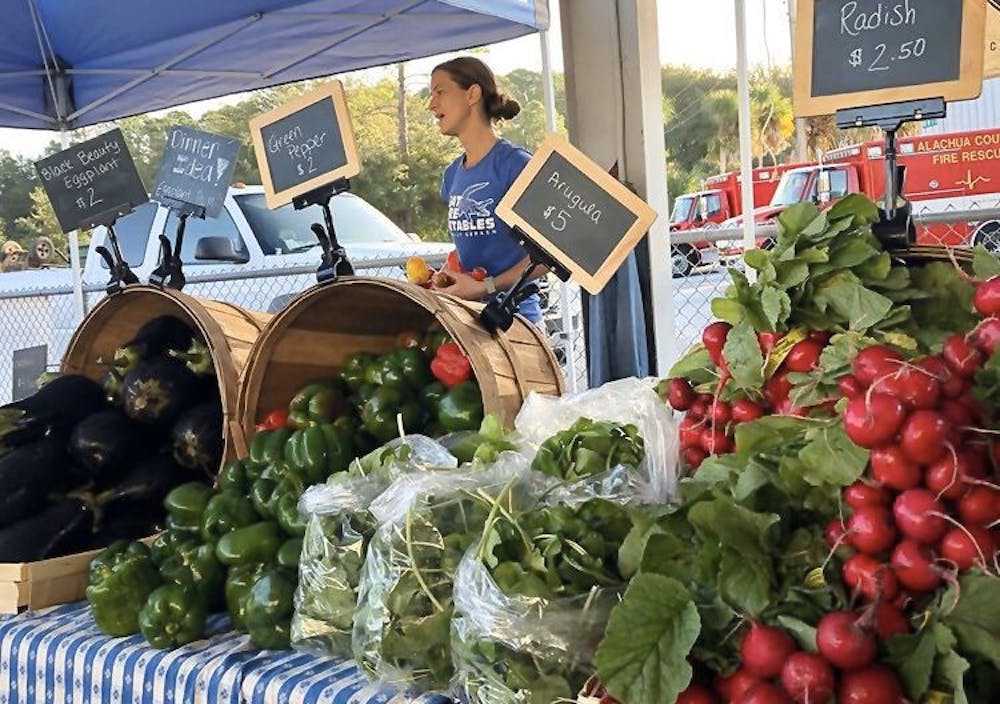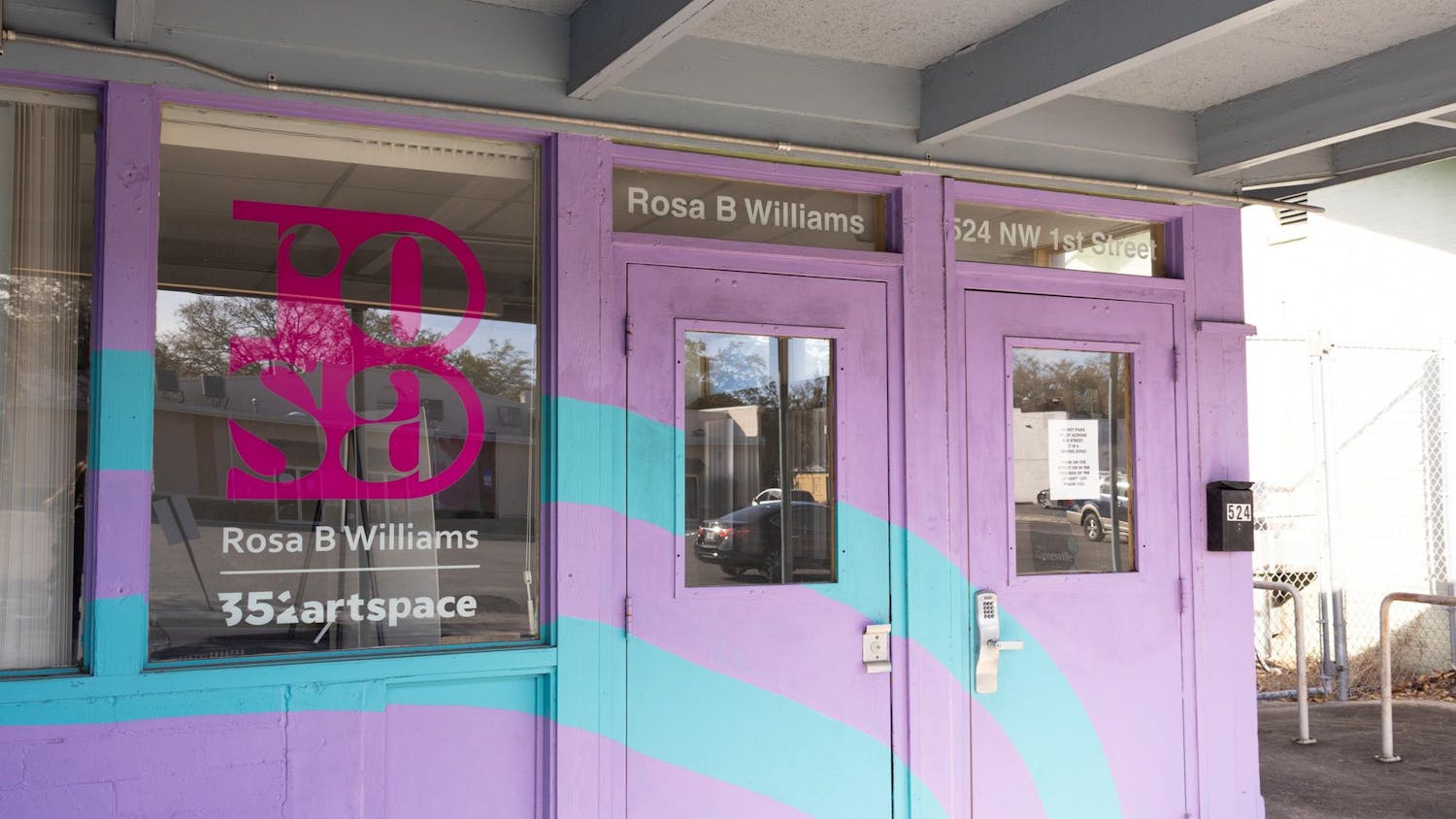Siembra. That’s the last name Cody Galligan and his partner chose for their son, Naim, and four years later for their daughter, Sofi. Galligan carefully picked the name, which means to grow, to plant and to sow.
Two years after Naim was born, Galligan founded Siembra Farm and named it after his son. Now, Naim and Sofi run through the 10-acre woods and along a creek outside of the property.
But through almost 10 years of owning Siembra Farm, Galligan has never seen anything like COVID-19.
In Alachua County, the agricultural industry makes up 17.5 percent of the county’s workforce and is the county’s third-largest employer. More than 50 percent of the total land use in the county is also devoted to farming, with over 180,000 acres of agricultural land.
According to a UF Institute of Food and Agricultural Sciences report, “every dollar of sales from agriculture products generates an additional $1.80 of business sales in other parts of the county’s economy.”
But some farmers and farmers markets have been forced to change the way they operate to cope with COVID-19.
Siembra Farm
On March 21, Siembra Farm sold produce at their last farmers market, Haile Farmers Market, located at 5213 SW 91st Terrace.
“We’re making the call to stop attending them and switch the gears to continue to provide the same amount of food to the community,” Galligan said.
Originally, Siembra Farm was family-run, but under the new collective system established last summer, the farm sells its produce at farmers markets and to restaurants. Now that the pandemic limits social gatherings, Siembra Farm is returning to selling Community Supported Agriculture (CSA).
The CSAs are packages of eight to 10 seasonal vegetables including carrots, cabbage, beets and broccoli for $35 with additional costs for shipping to East Gainesville.
Every Wednesday and Saturday, Siembra Farm sells the packages at the Working Food Community Center, located at 219 NW 10th Avenue, from 9 to 11 a.m. Customers must pre-order the package to prevent cash transactions and to limit contact.
To prevent the spread of COVID-19, Siembra Farm has installed handwashing stations and limited the number of people touching and harvesting the vegetables.
“As a farmer, we are providing food to the community, and we have an obligation to provide that in the safest way we can — both with how we grow the food and how we wash the food and finally how we distribute the food,” Galligan said.
With COVID-19 at the forefront of business owners’ minds, Galligan hopes that customers will continue to value organic food over store-bought vegetables. He isn’t experiencing any income issues right now, but he said he sees trouble on its way.
“It could harm our sales if the economy gets tighter, which I’m guessing it will,” he said.
The Family Garden
At The Family Garden, the loss of sales has been difficult. Before COVID-19, the farm sold produce to restaurants and the Alachua County School Board for hundreds of thousands of dollars.
Now, those crops may die in the fields.
“If they don’t buy it and we don’t have anybody to sell it to, then it goes bad, so we sit there and we watch thousands and thousands of dollars just go bad on the field,” owner Jordan Brown said. “We’re just trying to stay in business and we’re trying to take payroll, trying not to have to fire anybody, lay anybody off, but it’s getting challenging.”
Next week, the planting season at The Family Garden ends. As a result, the workers cannot alter how the plants are grown.
Despite the losses, people continued to pick strawberries Thursday through Saturday, bought vegetables from the stands and purchased Community Supported Agriculture packages.
The Family Garden is the largest CSA program in Gainesville, offering packages of eight to 10 items for $35 each week. The packages at the farm are memberships and can be purchased on their website.
Roger’s Farm
Now that farmers markets are closed, some of the strawberries on Roger’s Farm are already rotting, owner Mike Stephens said.
“We’re not really getting the sales that we would normally have,” he said. “I mean, we really won’t know the extent of it until the end of the season, when everything’s said and done and paid for.”
On the field, the workers are keeping their distance from one another, soaking and scrubbing the berries for 10 minutes after picking and accepting online orders to limit contact, Stephens said.
Stephens empathizes with other farmers facing losses. On social media, Stephens said he has seen large farms in South Florida that are not able to sell anything and that are giving away produce on the side of the street.
To aid the agriculture community, he has traveled to farms in South Florida and to farms in Tampa and purchased goods like lemons and limes to sell at Roger’s Farm.
Right now, Stephens is unsure of how much money he will lose. He said that the produce will either be sold, donated or go bad.
“There’s going to be a lot of people that take some really big hits, especially in agriculture,” he said. “(It costs) a lot of money to grow it, it cost a lot of money to harvest it, and if it’s not going anywhere, that’s basically just money thrown out the window.”
Contact Katie Delk at kdelk@alligator.org. Follow her on Twitter @katie_delk.
The Family Garden sells their produce at the Alachua County Farmers Market on Oct. 26. Now, they’re watching unsold produce rot in their fields due to COVID-19.

Katie Delk is a sophomore with a journalism major and an anthropology minor. For the Avenue, she writes about music, culture and the environment. When she is not writing, she is outside with the trees, reading a fantasy book or listening to Beach House.






